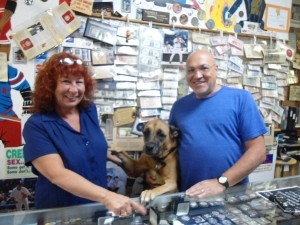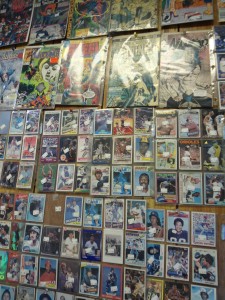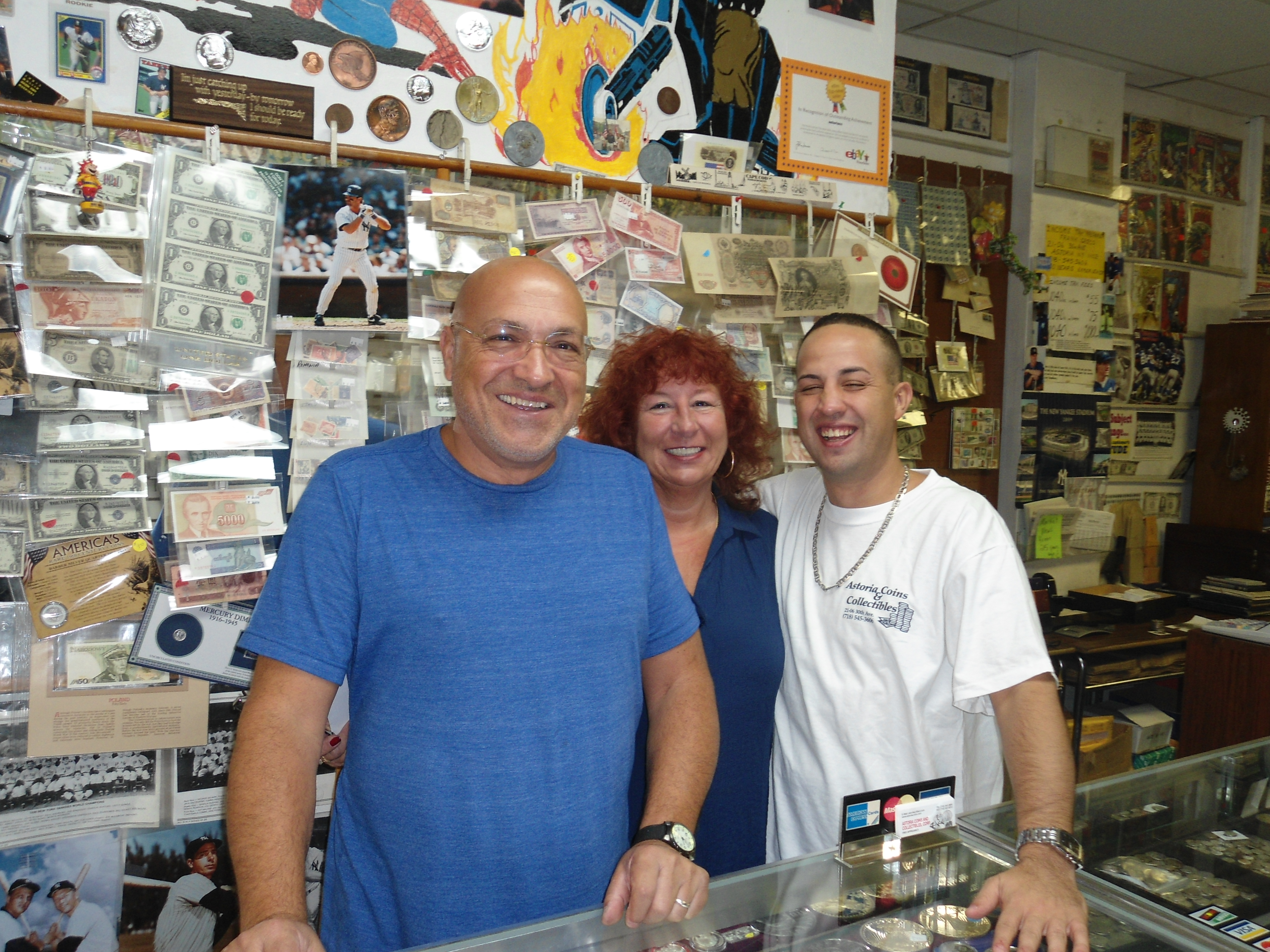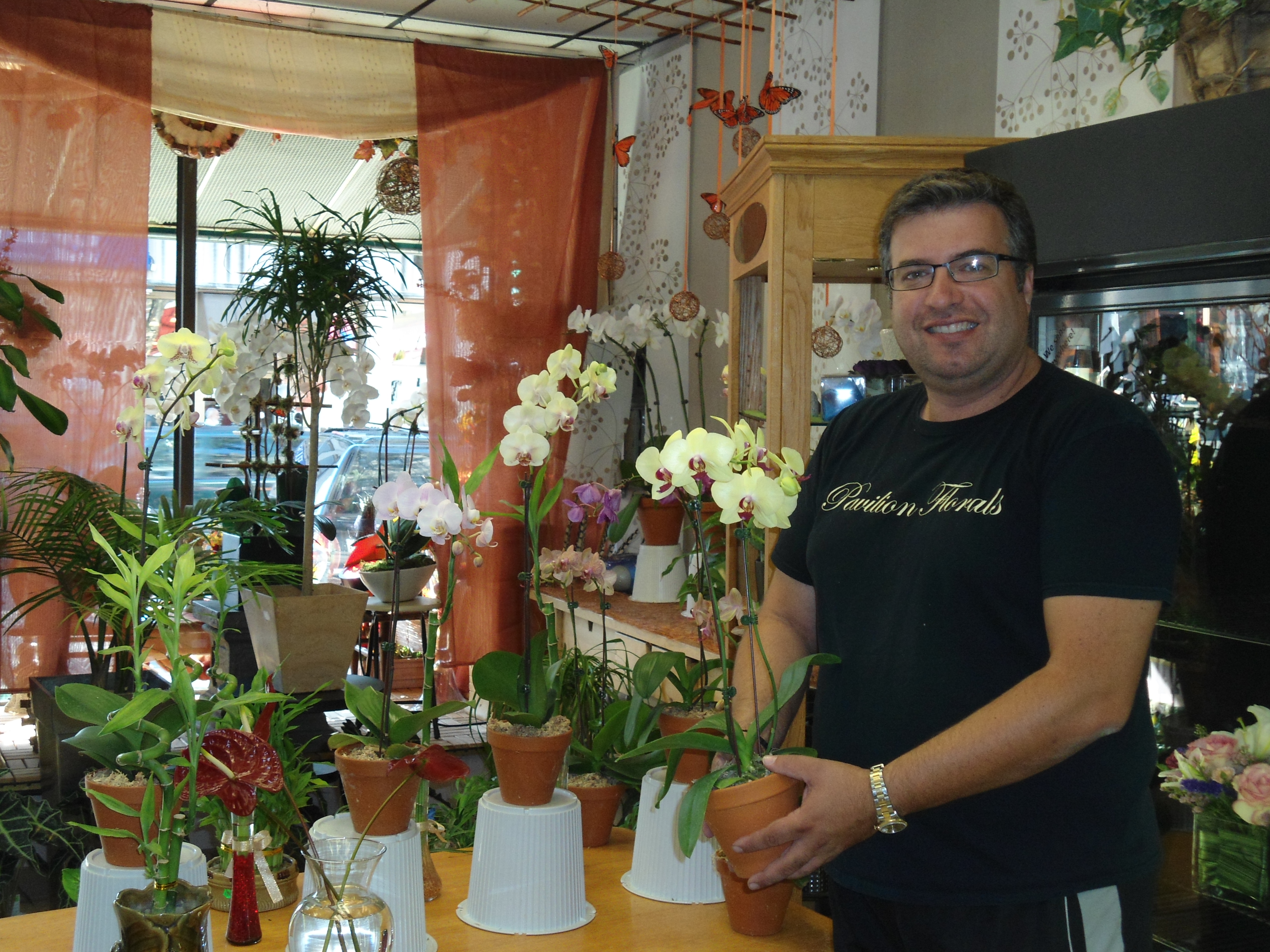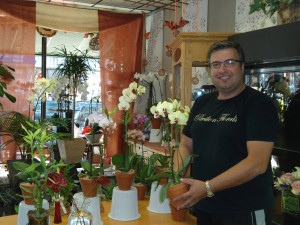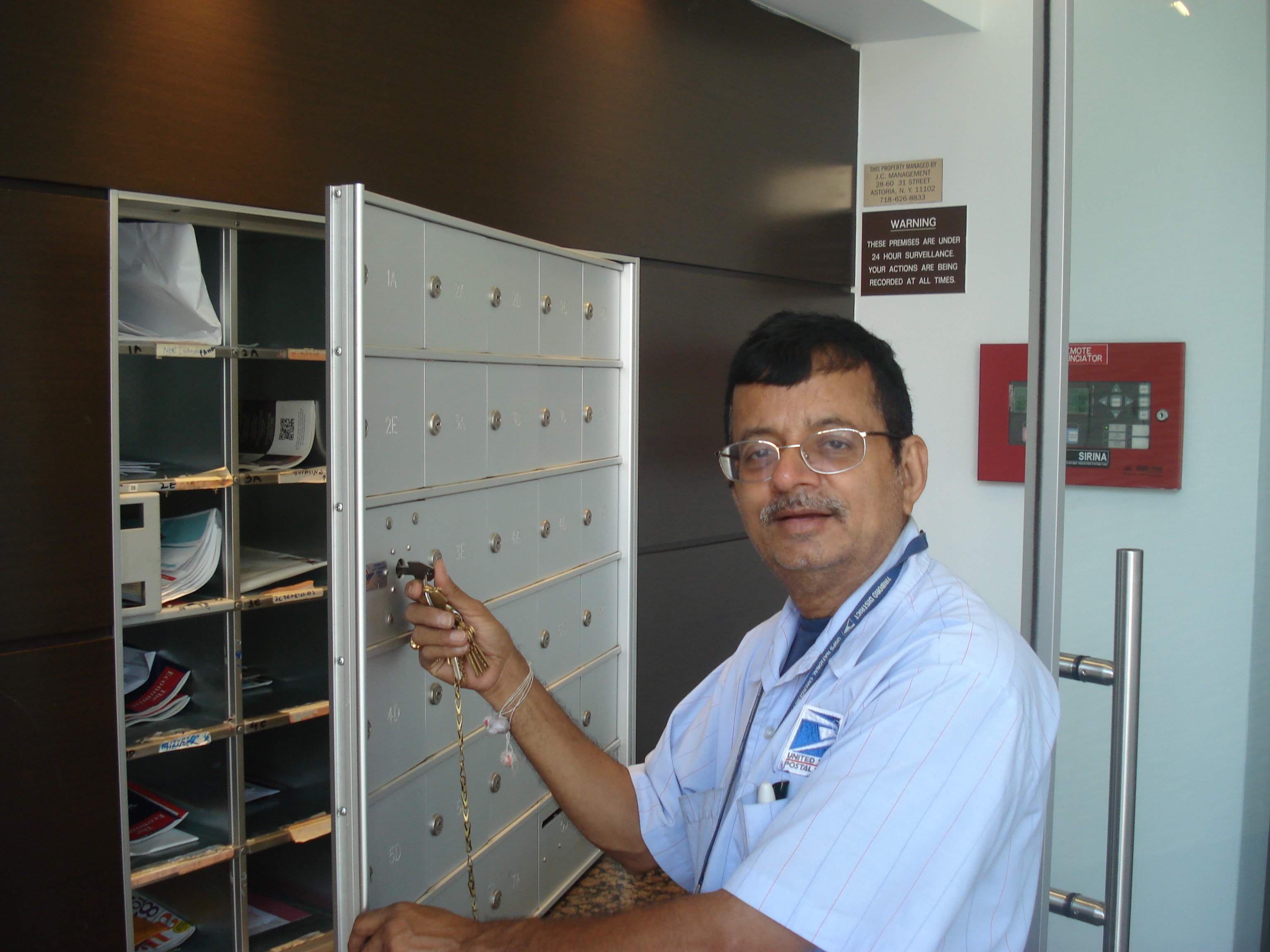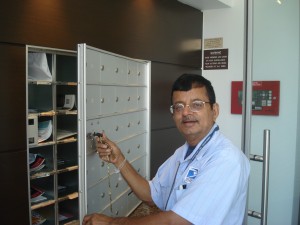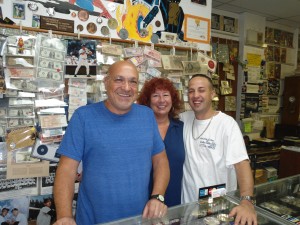
First up, a note from Jennifer Greco about the shop:
Astoria Coins and Collectibles is a place where collectors meet each other whether during working hours or on Saturdays, to discuss coins of interest, the market trends, or just stop by to say “Hello”. The highlight of the store has always been the display cases, and whatever wall hangings we have on display at the moment, and the comradely conversations. Frank Greco believes that these displays are not only of interest to our devoted customers, but even travelers find interest in the museum-like experience of seeing a small bit of history hanging on our walls and in our cases. Our unique coin shop is an interesting visit for people of all ages.
Interview
Frank and Jennifer Greco have run Astoria Coins and Collectibles on 30th Avenue since 1975. It was a coin shop before then too. Jennifer’s family owned the building, and the store first opened when she was around eight years old. “I used to come in all the time with my Dad,” she says. “I grew to love the shop and the idea of collecting coins…I guess it is in my blood now.”
She was fifteen when she met Frank. They were both working at Key Food supermarket, at the time located not on 30th Ave as it is now but on 31st Street, between 21st Avenue and Ditmars. Frank left Key Food after the couple had their children, as he was working really long hours. He got a job with Air Canada at JFK airport and began working in the coin shop as well on Saturdays. Then when he was laid off, he made the coin shop his full time vocation. Their two sons and daughter are now grown up: the middle son, Robert, works in the coin store too.
“It’s the whole thing,” Frank says, on why he is passionate about working with coins. “It’s a history lesson, really. For example you start thinking about the movies, and John Wayne when he used to go into a bar with a silver dollar and get a whole bottle and a meal, and maybe even a woman and still get change!”
The store focuses on US coins, but also sells coins from many other countries. Frank says that there used to be more coin shops, particularly in Manhattan. But given the increasing rents and rise of the internet there are far fewer now. He himself does a lot of business on the internet, while also sourcing coins from customers who bring them in, dealers who go from store to store, and shows.
The display cases that run the length of the store are crammed with clearly-labeled coins, each of which conveys a story. Recently among them were a coin commemorating Abraham Lincoln’s 1860 address at Cooper Union before he became President, and a more recent coin marking the diamond jubilee of Queen Elizabeth II in the UK.
The store also used to sell baseball cards and comic books, a hit with kids from the local boys club. They still provide a bright patchwork on the walls, along with cabinets of coins, hanging bills, and a superhero mural. But, Frank says, “It just got out of hand, got crazy. I’d be selling baseball cards for a dollar a piece and then all of a sudden they came out with the high-end cards for $10 a piece. Same thing with the comics. But kids don’t have ten dollars. So I just stopped it.”
The store provides an income tax service too. It predates the coin business, in that Jennifer’s father had a real estate office next door which also did income tax. Frank says: “At that time we would get the paper with the carbon copy in the middle and if you made a mistake you would rip it up and have to do another one. When I got started, all I remember is ‘Do it over! Do it over!”.
Astoria Coins and Collectibles is a place to hang out as much as a store. “My eldest son always says that we should turn on a video here, because of the people who come in and just talk,” Jennifer says. “Usually it starts about coins, about the economy, but then it becomes anything.”
A significant change they are seeing the neighborhood is the construction of new, expensive apartment buildings. “I see a yuppie generation coming in,” says Jennifer. “For the older generation – I can speak from my mom’s point of view because she was also born and raised in Astoria – she hates it. She says they’re killing Astoria, I guess killing the country feeling of it, that she had growing up around 18th Street.”
Frank adds: “I grew up in Long Island City, down by Vernon Boulevard and 40th, where the Pepsi plant was. When I grew up there it was just factories. Now it’s Manhattan just coming right over the river. And they’re going to do that along the waterfront here, too. It’s just a matter of time.”
He says that properties are being overpaid for. He cites the example of an apartment block on 21st Street where “they purchased five or six houses for $1.2 million. Most people who live there paid like $8-10,000 for their houses. If you get an offer for $1.2 million, you’re like ‘ok I’m out of here!’”
The coin store will no doubt though remain a community fixture for many years to come. Jennifer recently returned to work there after retiring from her work in education. “It’s invigorating,” she says. “Especially having been in a classroom, a school, where you know there’s a lot of action, I never realized what I was missing all those years!”
